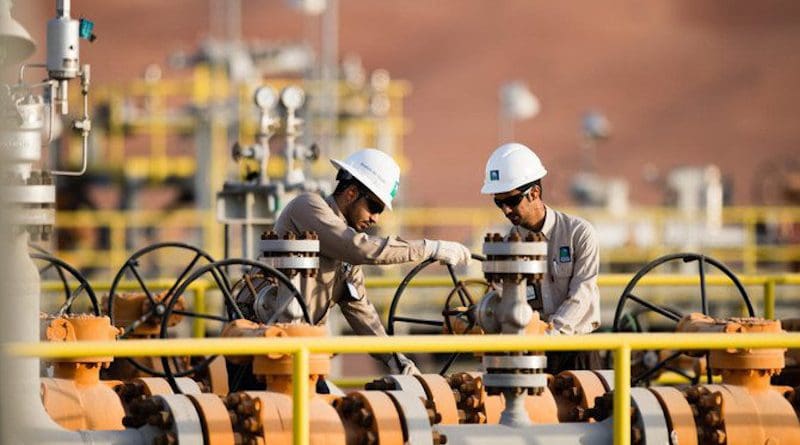How Gulf States Can Square The Oil Revenue Circle – OpEd
By Arab News
By Frank Kane*
When will oil revenues run dry, and what will replace them when they do? Those are the existential questions facing economic policymakers of the oil exporting countries of the Arabian Gulf.
Nowadays everyone — including the Gulf states themselves — agrees that demand for hydrocarbon fuels is likely to fall dramatically over the next three decades. How do regional governments make up for the huge shortfall in the public finances that will take place once “peak” demand has been reached and begins to trail off up to 2050?
A report by two experts at the Center on Global Energy Policy at Columbia University in New York casts new light on this dilemma, and reaches the interesting conclusion that the oil exporters have a surprisingly wide range of options to deal with the threat to their treasuries. In fact, they could “have it both ways”, as the report is subtitled.
Antoine Halff and Robin Mills are well known energy gurus with many years’ experience in the oil industry and in energy consulting. Their new report was written in collusion with some of the biggest names in the regional industry, so it is no apology for the environmental lobby.
Their basic position is simple: As the world wakes up to the undeniable threat posed by climate change and global warming — most recently highlighted by the Glasgow Pact after COP26 — “the issue is no longer simply about volatility and cyclicality of the oil market but rather a secular, structural, irreversible decline in global oil consumption, and the choices facing producers to support their hydrocarbon-reliant economies are fraught with risk,” they write.
The plans to diversify regional economies away from oil dependency — with Saudi Arabia’s Vision 2030 the most ambitious — are proof that policymakers recognize that risk. Strategies such as the Saudi and Middle East Green Initiatives are further evidence that the oil producers have moved from skepticism to wholehearted acceptance of the urgent need to tackle climate change.
But they are still left with the dilemma of how to pay for their own energy transitions, and ensure continued economic growth at home, as their main source of income dwindles. Per capita earnings from oil and gas are forecast by the International Energy Agency to fall from a current $1,800 to $450 by the 2030s.
The energy transition, it appears, is irresistible, but it will not happen overnight, regardless of the calls from the Greta faction and the new anti-oil sentiment in the Western financial community. Oil producers have time to refine policies and techniques to ease them through it and protect the living standards and livelihoods of their citizens.
One — which the OPEC+ alliance has been pursuing at least since the onset of the pandemic — is “demand defense.” This involves policies on price and volumes that drive out high cost competitors and ensure optimization of oil resources.
It has been remarkably successful. Saudi Arabia and other low-cost producers are taking a progressively bigger slice of the global oil market, even if it is set for long-term decline.
In addition, producers can invest to develop cleaner energy techniques, such as carbon capture, to make continued oil production more palatable. Likewise, they can pursue more efficient production techniques, reducing flaring and methane emissions, and improving fossil fuel efficiency.
The other big policy tool the producers have is “demand creation” in the form of new hydrocarbon-based products, or in new geographical regions. Petrochemicals and non-metallic materials are an example of the first, while supplying solutions to the energy poverty of Africa and South Asia illustrate the second.
Gulf oil producers are “having it both ways” in another sense, too. As investment by US shale companies and European oil majors declines, the only producers actually investing for new resources are the big players of OPEC. Both Saudi Arabia and the UAE are committed to significant expansion of their capacity over the next few years.
So, while committed to the fight against global warming, Gulf producers are also committed to pumping more of the hydrocarbons the world will need for years to come.
“Just as oil will continue to be needed in the global fuel mix even in a deep decarbonization scenario, so too will oil revenues be needed by Gulf countries to finance their transitions toward a more diversified form of economic development,” Halff and Mills conclude.
- Frank Kane is an award-winning business journalist based in Dubai. Twitter: @frankkanedubai

